Middle East
What is behind the violence in Syria? | Syria’s War News
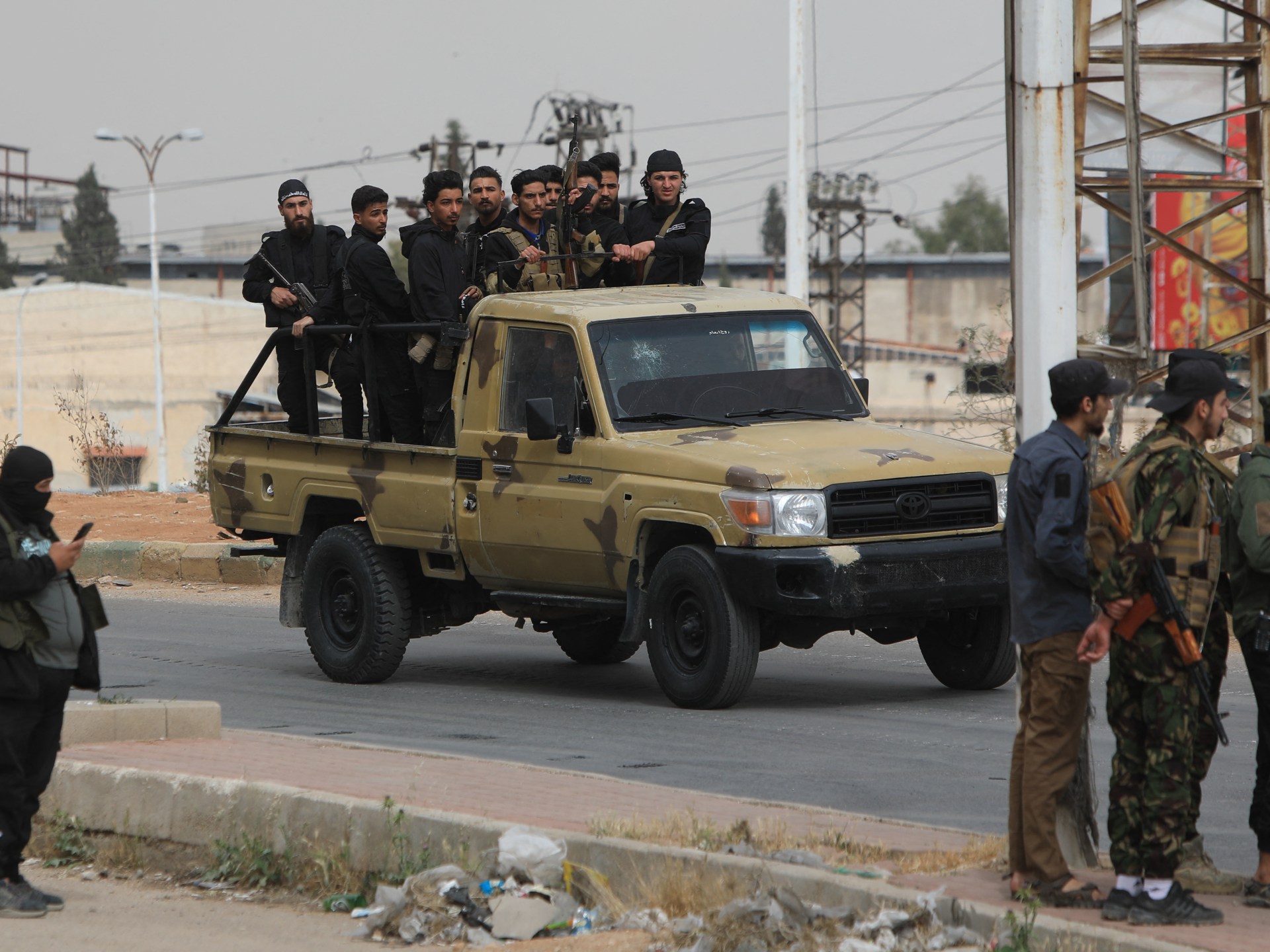
Clashes have erupted in Jaramana and Ashrafiyat Sahnaya on the outskirts of the Syrian capital, Damascus, this week.
The violence, which initially involved local armed men from the Druze religious minority and unknown gunmen from other towns, has killed at least 30 people.
Syrian security forces intervened to restore calm, but then Israel attacked Syria, claiming it was “defending the Druze”.
The unrest comes as the Syrian government, in power since the fall of former President Bashar al-Assad in December, tries to assert its control over the whole country.
So, what’s going on in Syria?
How did the latest unrest in Syria start?
Observers agree that the unrest seems to have started when a voice recording of a man cursing the Prophet Muhammad circulated, with claims that a Druze leader was speaking. The authenticity of the recording is questionable.
But it provoked the fury of many Syrians, and on Tuesday, a group of unknown gunmen attacked the mostly Druze town of Jaramana.
The Syrian Ministry of Interior says that its forces went to break up the clashes, before being attacked themselves.
The dead on Tuesday included at least two members of Syria’s General Security Services, the authorities said, while the Syrian Observatory for Human Rights (SOHR) said six Druze fighters and three “attackers” were also killed.
Then, on Wednesday, fighting spread to Ashrafiyat Sahnaya, another town in the Damascus suburbs with a significant Druze population.
A source in the Syrian Interior Ministry told Al Jazeera that 16 members of the security forces were killed in an attack on a security checkpoint in Sahnaya. That prompted more fighting, and six Druze fighters were killed, according to the SOHR.
Israel then launched air attacks on Sahnaya, targeting security personnel, according to the Interior Ministry, while Israel said it had attacked “extremists”.
The Syrian authorities have since announced that calm has been restored in both Jaramana and Ashrafiyat Sahnaya.
What led to the violence?
Syria’s new administration is trying to stabilise the country, but fallout from 12-plus years of war, the many armed groups in the country and the instability that comes with big changes have made for a volatile environment.
The worst unrest was in early March when hundreds were killed in Syria’s coastal region.
Fighters loyal to the Assad regime attacked security forces, setting off the violence as fighters from other areas came in to fight, and widespread attacks were reported against civilians, many from the former president’s Alawite sect.
There is fear in Syria that al-Assad’s supporters will keep trying to overthrow the new authorities, who have not yet been able to exert power and provide security across the whole country.
Some of that fear has morphed into suspicion of minorities such as Alawites and Druze.
The minorities, in turn, fear this suspicion and worry about the fact that there are still armed fighters with backgrounds in groups such as al-Qaeda.
The new government has emphasised that all are equal in the new Syria, but that has yet to quieten these fears.
Add to this mix the potential for fake news to spread on social media, and the country is rife with the tensions that led to the most recent fighting in Jaramana and Ashrafiyat Sahnaya.
Why is Israel involved?
Israel seems to have stepped up its attacks on Syria and is occupying more and more land since the fall of al-Assad.
It already illegally occupied part of the Syrian Golan Heights along the border, and regularly bombed sites in Syria it claimed belonged to pro-Iranian groups like Lebanon’s Hezbollah.
When al-Assad fled, Israel saw an opportunity, analysts say, and stepped up its attacks, claiming that the new government is “extremist” and cloaking itself as a defender of the Druze in Syria, part of whose community lives under Israeli control.
Israeli Prime Minister Benjamin Netanyahu has said “he would not allow” Syrian government forces to operate in Syrian territory south of the capital, Damascus, calling for the “full demilitarisation” of the area.
Some Israelis have called for taking control of Druze-majority areas in southern Syria, claiming that would create an alliance of minorities across the Middle East.
On Wednesday, after the fighting in Ashrafiyat Sahnaya, the Israeli military said that it had taken three Syrian Druze to Israel to receive medical treatment.
Who are the Druze, and who do they support?
The Druze, an ethnoreligious Arabic-speaking group that grew out of Ismaili Shia Islam, live in Jordan, Lebanon and Syria as well as Israel, especially the occupied Golan Heights.
Nobody can claim to know who “all the Druze” support. Individuals or sub-groups within each national community will have differing opinions.
The Druze population in Israel is estimated at 150,000, and Israel conscripts their young men into the army, whereas it does not conscript Palestinian citizens of Israel.
The Druze in Jordan, Lebanon and Syria are openly supportive of the Palestinian cause, while Syrian Druze leaders have vehemently rejected the idea of friendlier ties with Israel.
The communities are important players in their countries’ politics, particularly in Lebanon, where Druze leader Walid Jumblatt has been influential for decades.
In Syria, many Druze were active in the opposition against al-Assad, and have been publicly supportive of the new government.
Middle East
Fourth round of US-Iran nuclear talks postponed amid continued tensions | Nuclear Energy News
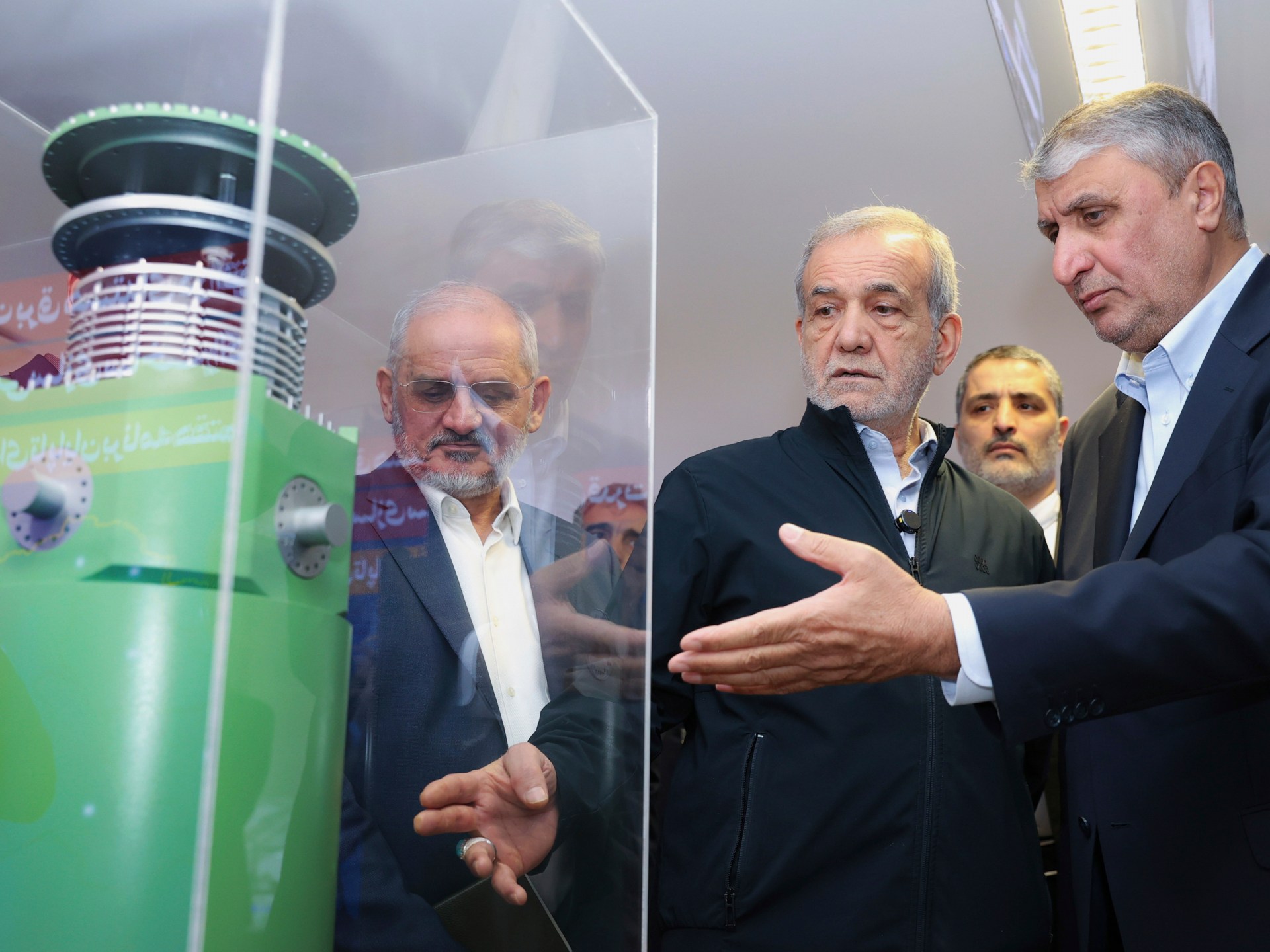
The foreign minister of Oman has announced that a fourth round of talks with the United States about Iran’s nuclear programme had been postponed.
Minister Badr bin Hamad al-Busaidi made the announcement on the social media platform X on Thursday, just days before the talks were expected to begin in Rome.
“For logistical reasons we are rescheduling the US Iran meeting provisionally planned for Saturday May 3rd,” he wrote. “New dates will be announced when mutually agreed.”
Al-Busaidi had previously mediated three rounds of talks between Iran and the US. The first took place in Oman’s capital of Moscat on April 12, with a follow-up in Rome the following weekend. A third round of negotations returned to Moscat on April 26, with the US touting “progress” towards a nuclear deal.
But tensions between the Iranian and US governments have been simmering beneath the near-weekly meetings.
The administration of President Donald Trump has said its aim is to prevent Iran from developing a nuclear weapon, though Tehran has long denied armament as a goal. It frames its nuclear programme as a civilian energy project.
The Trump White House has hinted its goals may extend further, though, to the total dismantlement of Iran’s nuclear enrichment programme. In mid-April, US special envoy Steve Witkoff released a statement saying that “Iran must stop and eliminate its nuclear enrichment and weaponization program” as part of a final deal.
Earlier on Thursday, before the postponement was announced, Iran accused the US of issuing “contradictory behaviour and provocative statements” about the nuclear negotiations.
And on Wednesday, the US made a series of aggressive moves as part of its “maximum pressure” campaign against Iran, heightening the already uneasy relations.
First, the US Department of State sanctioned seven entities involved in the trade of Iranian oil products, on the basis that the proceeds “support its terrorist activities and proxies”. Then, Defense Secretary Pete Hegseth offered his own remarks, warning that Iranian support of the Houthis, a Yemen-based armed group, could result in US retaliation.
“Message to IRAN: We see your LETHAL support to The Houthis. We know exactly what you are doing,” Hegseth wrote on social media on Wednesday.
“You know very well what the U.S. Military is capable of — and you were warned. You will pay the CONSEQUENCE at the time and place of our choosing.”
Despite the heated rhetoric, Iran’s Ministry of Foreign Affairs said that Thursday’s postponement came “at the request of Oman’s foreign minister”. Iranian spokesperson Esmail Baghaei also emphasised that his country was committed to achieving “a fair and lasting agreement” with the US.
Still, a senior official with the Iranian government told the Reuters news agency on condition of anonymity that the recent US actions were tied to the delay.
“US sanctions on Iran during the nuclear talks are not helping the sides to resolve the nuclear dispute through diplomacy,” the official told Reuters. “Depending on the US approach, the date of the next round of talks will be announced.”
Other media reports, meanwhile, indicate that the US was not completely on board with the prospects of renewed talks in Rome this weekend.
An anonymous source told The Associated Press that the US “had never confirmed its participation” in this weekend’s anticipated talks, but that further negotiations were expected “in the near future”.
Successive US administrations have sought to prevent Iran from acquiring a nuclear weapon. One recent effort culminated with a 2015 agreement called the Joint Comprehensive Plan of Action (JCPOA).
The multilateral agreement, forged during the administration of US President Barack Obama, created a framework for Iran to receive relief from international sanctions, in exchange for reducing its uranium enrichment and submitting to inspections of its nuclear facilities.
But when Trump succeeded Obama as US president, he set into motion plans to withdraw the US from the JCPOA in 2018, causing the deal to crumble.
Instead, during his first term as president from 2017 to 2021, Trump pursued a campaign of “maximum pressure” against Iran, a strategy he has returned to since taking office a second time in January.
When Trump launched a new round of US attacks against the Houthis in March, he warned he held Iran responsible for Houthi strikes against ships in the Red Sea — and he hinted he would consider using force against that country as a result.
“Every shot fired by the Houthis will be looked upon, from this point forward, as being a shot fired from the weapons and leadership of IRAN, and IRAN will be held responsible, and suffer the consequences, and those consequences will be dire!” Trump wrote on March 17.
More recently, the US president threatened military action could also be an outcome if a nuclear deal were not reached.
In an interview with Time Magazine, published on April 25, Trump addressed the pressure from the US’s ally Israel to confront Iran militarily, saying he had not ruled it out.
“It’s possible we’ll have to attack because Iran will not have a nuclear weapon,” Trump said at one point. “Ultimately, I was going to leave that choice to them, but I said I would much prefer a deal than bombs being dropped.”
He later added, “If we don’t make a deal, I’ll be leading the pack,” seemingly referring to military intervention.
But the US president emphasised he was optimistic that the talks with Iran would pan out. He even expressed willingness to meet with Iran’s leadership personally.
“I think that we’re going to make a deal with Iran. I think we’re going to make a deal with Iran,” he said. “Nobody else could do that.”
Middle East
Pro-Palestine activist arrested in Belgium after attending protest | Israel-Palestine conflict News
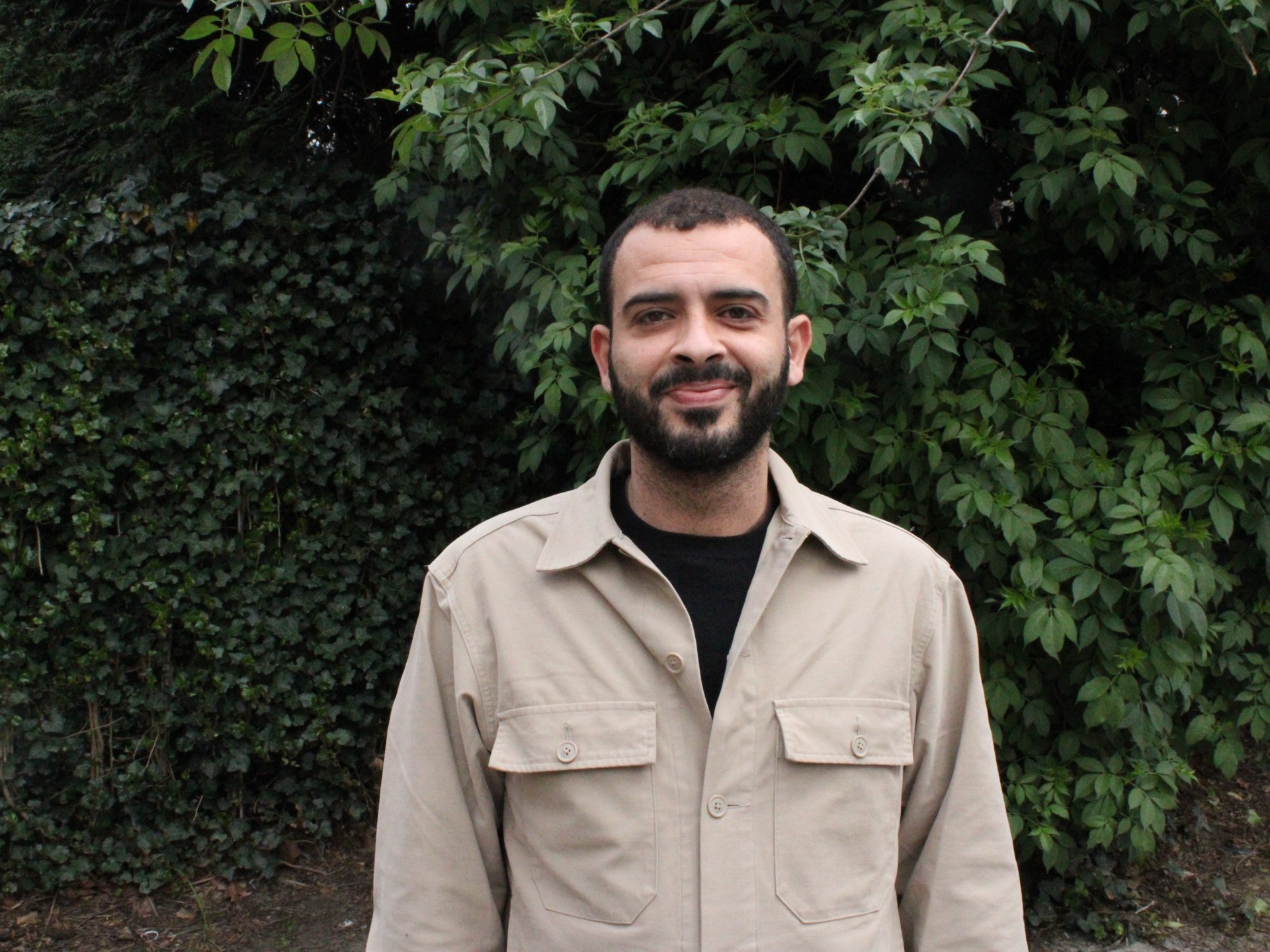
Brussels, Belgium – The recent arrest of a Palestinian activist in Belgium has raised alarm as the organisation he works for describes the incident as “a form of state harassment”.
Mohammed Khatib, the 35-year-old European coordinator for Samidoun, a global Palestinian prisoner solidarity network, was arrested on April 21 after attending a daily protest demanding an end to Israel’s genocide against Palestinians in Gaza.
Every evening, dozens of people, some sporting keffiyehs, gather on the steps of the former stock exchange in Brussels to drape a Palestine flag down the steps and chant slogans of solidarity in English, Arabic and French.
A police presence is usual, but Khatib felt uneasy when he noticed an officer photographing him
He left about 7:30pm (17:30 GMT) and was stopped nearby for what he called a “spontaneous” ID check by local police.
He was arrested and taken in a police van to a central station. About 30 supporters gathered outside, chanting, “Free our comrade!” before being dispersed by riot police about 10pm (20:00 GMT).
Khatib was then transferred to a nearby station. He was questioned without a lawyer and released about 5am (03:00 GMT).
Khatib said he spent hours waiting in a cell before being asked for a few minutes about an incident in April 2024 during which he was attacked with a knife. There was also a brief trip to the hospital for nonurgent medication.
“They were doing anything they could to keep me,” Khatib told Al Jazeera.
The Brussels Public Prosecutor’s Office told Al Jazeera: “Mohammed Khatib was arrested as part of an investigation into events that took place in April 2024. He was released after questioning.”
Belgium’s tensions with pro-Palestine movement
A Palestinian refugee born in the Ein El Hilweh camp in Lebanon in 1990, Khatib fled to Belgium alone at age 19, claimed asylum and co-founded Samidoun one year later in 2011. Campaigning for the rights of Palestinians incarcerated in Israel is his sole occupation.
Samidoun’s stance on Israel-Palestine has led to Khatib being designated as a “serious” security threat by the Coordination Unit for Threat Analysis (CUTA), an independent body that reports to Belgium’s justice and interior ministries.
Khatib said officers on April 21 justified the arrest initially with the CUTA designation.
It marked the second time he has been arrested. In October 2023, he was arrested at a demonstration after refusing to stop waving a Palestine flag.
The latest detention was “nothing in terms of what we are facing”, he said, referring to efforts in some Western nations to curtail the pro-Palestine movement.
Samidoun called the arrest “a form of state harassment targeting a prominent leader, not only of Samidoun, but of the growing movement against the ongoing genocide in occupied Palestine”.
“It’s hard not to see it in that light,” refugee and immigration lawyer Benoit Dhondt told Al Jazeera. “A lot of people are living in a state of schizophrenia because of how invisible the genocide in Gaza is being made in Europe.”
Meanwhile, “disproportionate policing of the pro-Palestine movement makes it very difficult to understand what is actually happening,” he said.
The author and journalist David Cronin wrote in The Electronic Intifada: “If the Belgian authorities enjoy any success in muzzling Mohammed Khatib and Samidoun, then we have to ask: Who is next? All Palestine solidarity campaigners are at risk.”
In May last year, police used water cannon and tear gas to disperse a peaceful protest outside the Israeli embassy in Brussels under instructions from Mayor Boris Dillies, who said the demonstration was unauthorised. An open letter signed by Amnesty International described the measure as “contrary to international law”.
Earlier that month, police had arrested about 40 protesters when a demonstration at the US embassy went overtime.
In a report on the state of the right to protest published in July, Amnesty noted that administrative arrest “is increasingly used to prevent people from participating in protests” in Belgium.
Human rights and immigration lawyer Helene Crokart told Al Jazeera that arrests “are not isolated incidents” and “sometimes amount to outright intimidation”.
Samidoun, Khatib in the crosshairs
On October 15, then-State Secretary for Migration and Asylum Nicole De Moor, a Christian Democrat, announced a procedure to strip Khatib, who she called a “hate preacher”, of asylum.
“Even if someone has already been recognised as a refugee but that person turns out to be an extremist, recognition can be withdrawn,” she stated.
On the same day, the United States and Canada blacklisted Samidoun, deeming it a “sham charity” and accusing it of raising funds for the Popular Front for the Liberation of Palestine, a designated “terrorist” organisation.
Samidoun denied the allegation.
Germany banned Samidoun in 2023, alleging it celebrated the October 7, 2023, Hamas-led attacks in southern Israel. Khatib said, “Some Palestinians were distributing baklava in the street. And we were there with the Samidoun flag.”
Khatib has also been banned from entering Switzerland for 10 years, which occurs only when an individual poses what is considered a “concrete” threat to national security, according to a Swiss government spokesperson. He was not permitted to enter the Netherlands for a university talk in October.
During the October 2023 attacks, 1,139 people were killed and more than 200 were taken captive into Gaza. Since then, Israel’s latest war on Gaza has killed more than 52,000 people, including more than 17,000 children, in the besieged enclave. Israel has justified the onslaught as an attempt to crush Hamas.
According to a CUTA spokesperson, Samidoun is classified as an “extremist” organisation, which “is not a criminal offence”.
“We are more interested in keeping an eye on the leadership, the members, what they do and say, how they disrupt public order and what group they are potentially targeting,” the spokesperson said.
Belgium’s right-wing government, appointed in February, is markedly more sympathetic to Israel than its predecessor.
Prime Minister Bart De Wever of the New Flemish Alliance party said Belgium would not arrest Israeli Prime Minister Benjamin Netanyahu despite an International Criminal Court (ICC) warrant for his arrest on charges of crimes against humanity. Four months earlier, then-Liberal Premier Alexander De Croo stated the opposite.
The coalition headed by De Wever intends to “ban dangerous radical organisations such as Samidoun due to their ties to terrorism or for spreading antisemitism”, according to official documents.
But a ban would likely take a long time to implement because Belgian positions depend on European Union and United Nations Security Council decisions.
De Moor’s successor, Anneleen Van Bossuyt, supports the initiative to revoke Khatib’s refugee status. Such a decision is made independently by the commissioner general for refugees and stateless persons and must rely on proof of a serious crime.
A decision to strip someone’s status may be appealed, but once finalised, the immigration office could issue an order for a person to leave the country.
The case depends on material that authorities said they are not sharing, even with Khatib.
Dhondt warned of a “chilling effect” on freedom of expression.
The government is using Khatib’s case as a “propaganda tool” to demonstrate strong policies on “extremism”, he said, even though it “can’t really say why [Khatib poses any threat]”.
Khatib denies all allegations of hate speech.
“If they had something they could use against me, I would not be sitting here. I would be in prison.
“The goal of this intimidation is to silence the movement, to make an example of us and say, ‘If you do the same, this is your future’. We will fight this.”
‘Smear campaign’
Khatib has previously called for Israel to be “dismantled” and said, “We do not call Hamas’s attack in Israel a terror attack. We call it justified resistance.”
Seen as hardline positions by some, mainstream activists have distanced themselves from Samidoun but urged Brussels to uphold freedom of expression.
The Human Rights League, a nonprofit organisation that has criticised Belgian authorities for allowing the transit of arms to Israel, does not wholly endorse Khatib’s views but “reiterates the need to protect freedom of expression, including for statements that ‘offend, shock or disturb’, according to the European Court of Human Rights”.
“While the positions defended by Mohammed Khatib and Samidoun can undeniably be described as radical, … to our knowledge they have never been prosecuted for any criminal offence (including for anti-Semitic statements) nor have they caused any public disorder,” the rights group said in a 2024 report.
The group linked Khatib’s case to other measures, such as local bans on keffiyehs and other pro-Palestine symbols and the temporary suspension of decisions on Palestinian asylum applications. The report concluded that the lack of a decision on revoking Khatib’s refugee status suggests insufficient evidence against him.
The Union of Progressive Jews in Belgium last year denounced a “smear campaign” against Khatib.
“Whatever political differences we may have, this threat is intolerable and shakes the very foundations of our democracy.”
Middle East
Sudan ‘horror knows no bounds’, says UN, as deaths in Darfur rise | Sudan war News
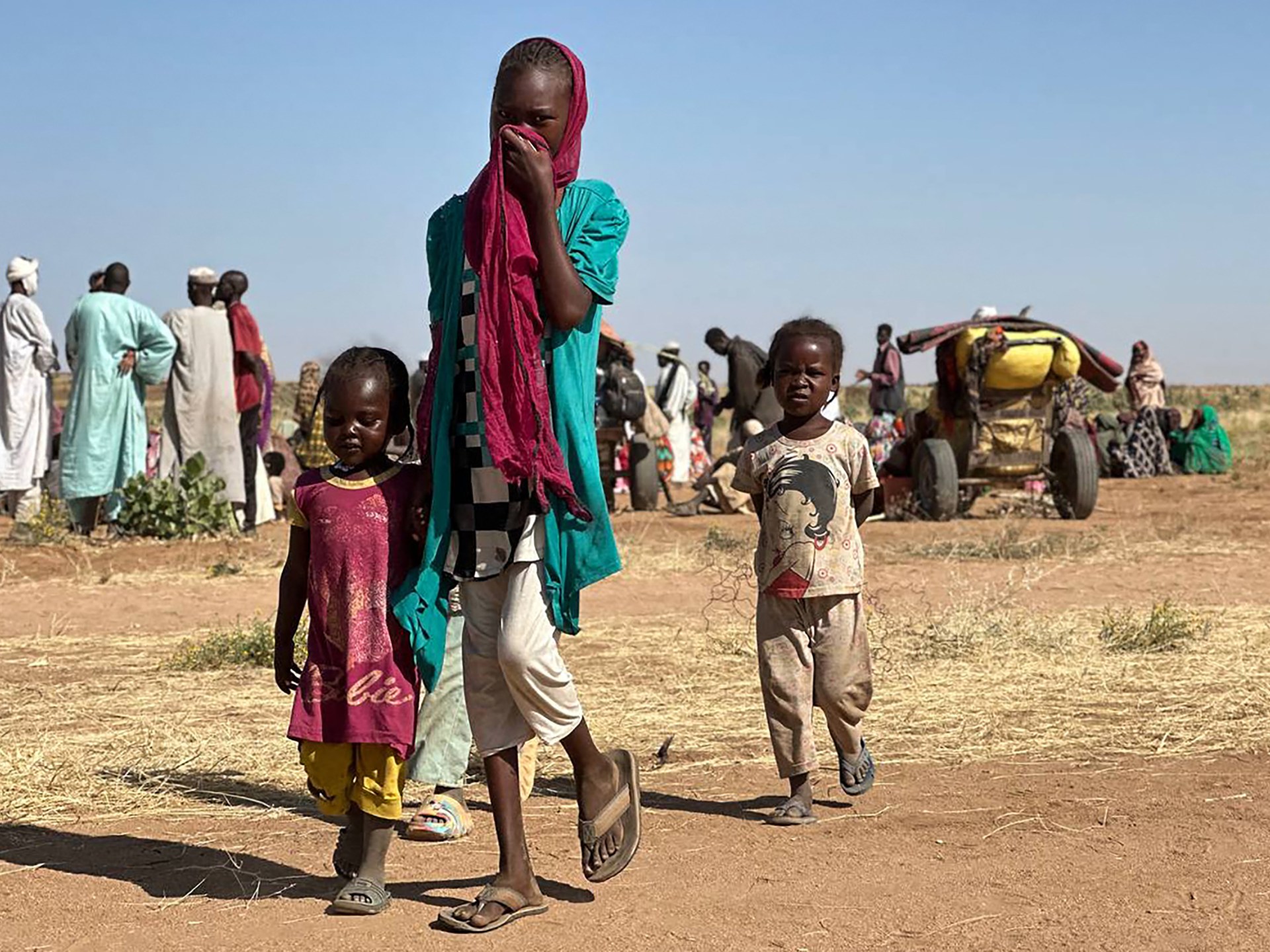
UN rights chief says civilians ‘trapped in dire conditions’ in and around el-Fasher as RSF warns of further ‘bloodshed’.
More than 540 people have been killed in Sudan’s North Darfur in just three weeks as paramilitaries intensify their attritional battle for the regional capital of el-Fasher, according to the United Nations.
“The horror unfolding in Sudan knows no bounds,” said Volker Turk, the UN high commissioner for human rights, in a statement on the devastating impact of the two-year civil war published on Thursday, signalling that the death toll of 542 over the past three weeks was likely “much higher”.
Darfur in particular has been a key battleground in the brutal war that erupted in April 2023 between the Sudanese Armed Forces (SAF) and the paramilitary Rapid Support Forces (RSF), which has left tens of thousands dead, uprooted more than 12 million and created what the UN describes as the world’s worst humanitarian crisis.
The RSF, which lost Khartoum last month, has in recent weeks mounted multiple attacks on el-Fasher and the nearby refugee camps of Zamzam and Abu Shouk, triggering an exodus of hundreds of thousands of people 60km (37 miles) across the desert to the town of Tawila.
Sudan’s presidential palace in central Khartoum was shelled Thursday by the RSF, a military source told the AFP news agency, the second such attack on the capital in a week.
Turk pointed to a new attack three days ago by the RSF on el-Fasher and Abu Shouk that killed at least 40 civilians.
He said he feared further violence after the RSF issued a warning of further “bloodshed” ahead of “imminent battles”, adding that civilians “trapped amid dire conditions” in and around el-Fasher needed to be protected.
Turk’s statement came as the RSF was on the cusp of seizing control of the strategic city of al-Nahud in West Kordofan, a gateway to the Darfur region, held by Sudan’s army since the start of the conflict.
Reporting from Khartoum, Al Jazeera’s Hiba Morgan said that both sides viewed the city as crucial for gaining the upper hand in the conflict.
“It’s clear that the RSF does not want the army to try to launch attacks on its positions in Darfur, especially since the army has been saying that it wants to retake cities in Darfur … and they want to break the RSF’s siege of el-Fasher,” she said.
‘Extremely disturbing’
Turk also highlighted “reports of extrajudicial executions in Khartoum state”, which he described as “extremely disturbing”.
He described videos circulating on social media that showed at least 30 men in civilian clothing being rounded up and shot by armed men in RSF uniforms in the al-Salha area in the country’s second-largest city, Omdurman.
In a subsequent video “an RSF field commander acknowledged the killings”, he said.
The videos followed “shocking reports” of the “extrajudicial execution of dozens of people accused of collaborating with the RSF in southern Khartoum in recent weeks”, which had allegedly been committed by the Al-Baraa Bin Malik Brigade, a pro-SAF armed rebel group, according to Turk.
The conflict between SAF, led by Abdel Fattah al-Burhan, and the RSF’s Mohamed Hamdan “Hemedti” Daglo has divided Sudan in two, with the army holding sway in the north and east, while the RSF controls most of Darfur and parts of the south.
Turk said he had alerted both leaders to the “catastrophic human rights consequences” of the war, saying it was “well past time for this conflict to stop”.
-

 Lifestyle2 days ago
Lifestyle2 days agoAfter a year of turmoil, The Washington Post is taking note of its journalism again
-

 Asia2 days ago
Asia2 days agoFall of Saigon: US officers who broke rank to save lives recall final days of Vietnam War 50 years on
-
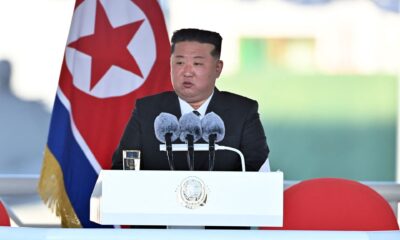
 Conflict Zones2 days ago
Conflict Zones2 days agoAbout 600 North Korean soldiers killed in war in Ukraine, lawmakers say | Russia-Ukraine war News
-
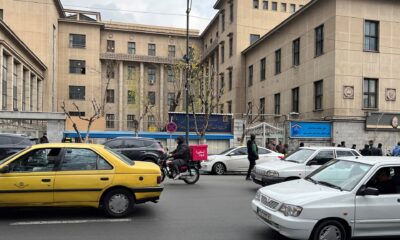
 Middle East1 day ago
Middle East1 day agoIran hangs man convicted of spying for Israel’s Mossad | Espionage News
-
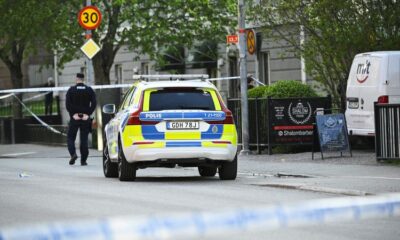
 Europe2 days ago
Europe2 days ago16-year-old suspect detained after 3 killed in shooting in Sweden
-
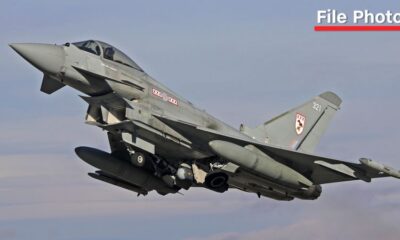
 Europe2 days ago
Europe2 days agoSanaa, Yemen: UK launches strikes against Houthis, in first joint US operation under Trump
-

 Sports2 days ago
Sports2 days agoMaya Merhige: American teenager withstood thousands of jellyfish stings during a 14-hour swim across the Cook Strait
-
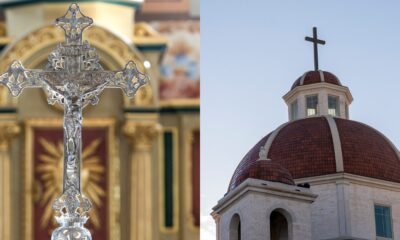
 Education1 day ago
Education1 day agoSupreme Court considers endorsing country’s first religious public charter school




